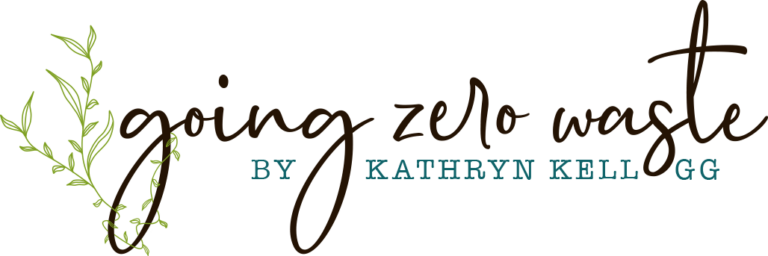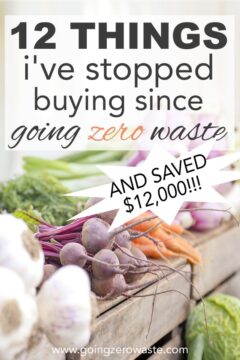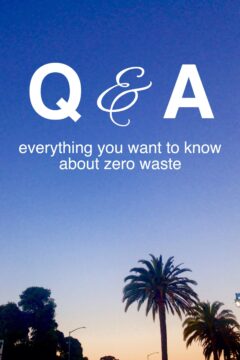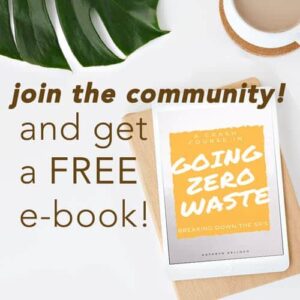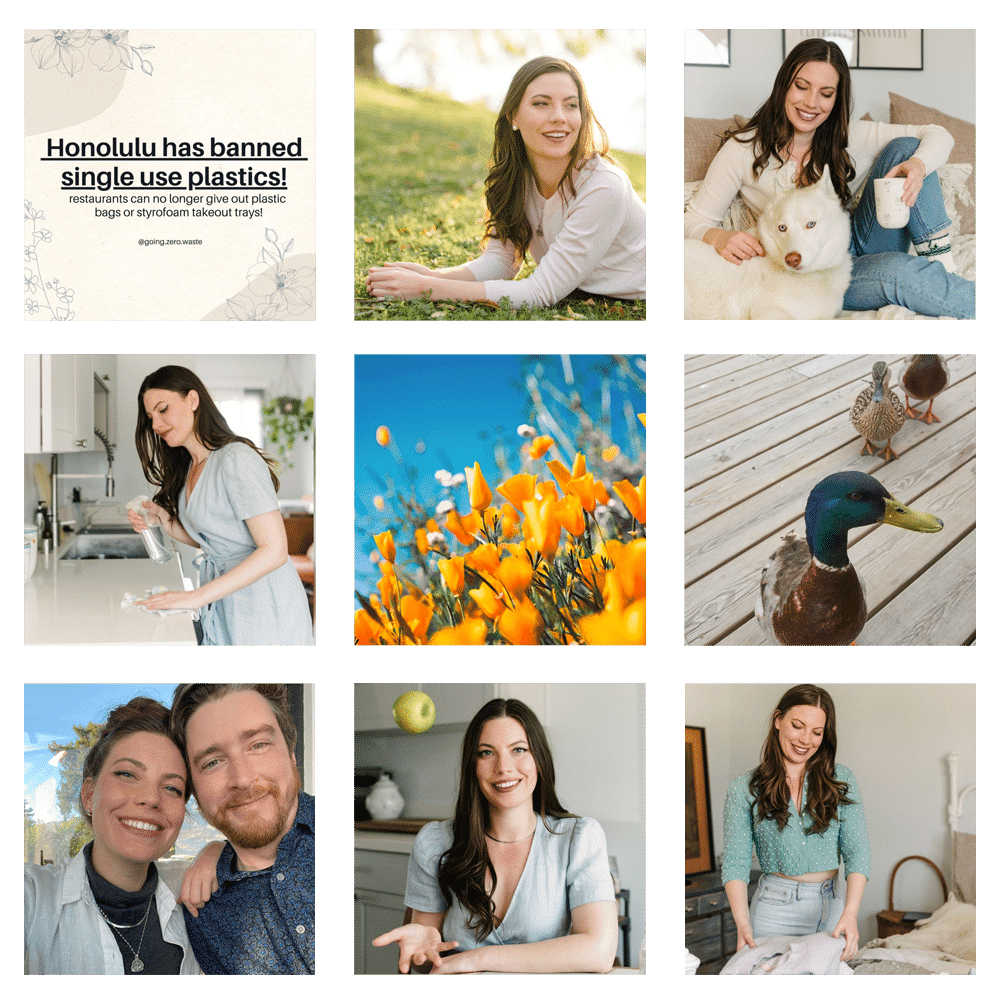8 Things You Should Know BEFORE Going Zero Waste
Zero Waste Lifestyle
September 15, 2020 | Kathryn Kellogg
Last Updated on September 15, 2020
Zero waste living has become quite popular over the last few years, and I wanted to write an article about the things you should know before going zero waste.
AKA all the things I wish someone had told me! Currently, most of the influential people in the zero waste movement are very welcoming and transparent with the fact ‘zero waste’ is impossible.
But, when I started going zero waste it was not that way…
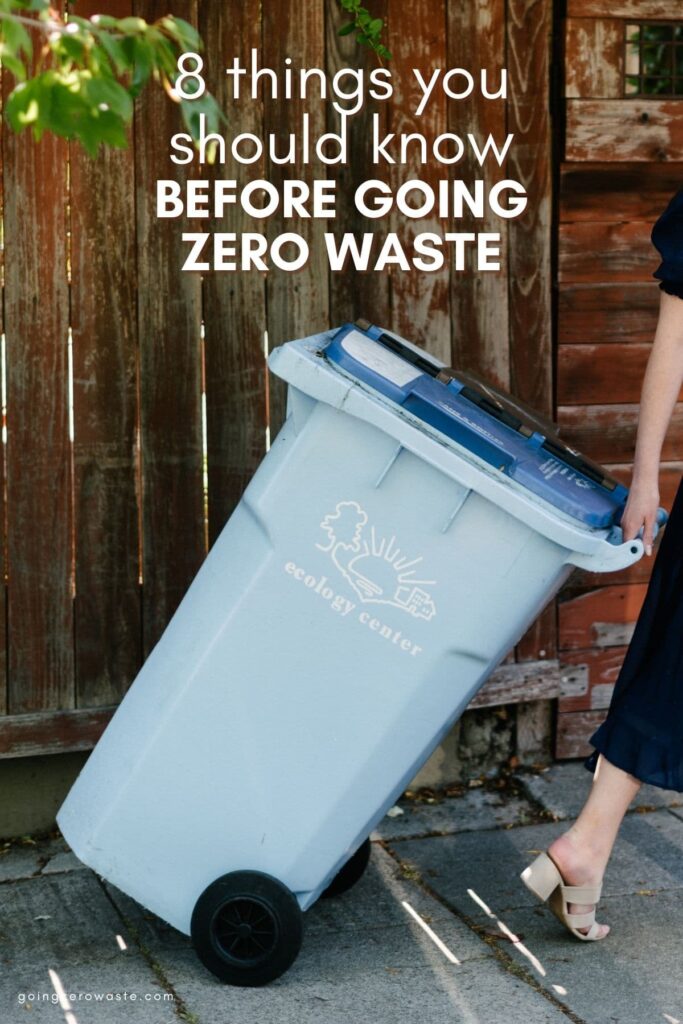
At the time, only two people were talking about zero waste living, and they both live in big cities with quite a bit more access to things than I had growing up in Arkansas.
I specifically started my platform to show that going zero waste doesn’t have to be all-or-nothing. You don’t have to fit all your trash in a mason jar, and you don’t have to do things the exact same way as anyone else!
You need to find what works for you, and I think it’s amazing there are tons of options out there so you can find your perfect fit.
If you’re just starting out, make sure to read my blog post What is Zero Waste? so you understand the definition of what the movement is and isn’t.
Table of Contents
1. you don’t have to fit your trash in a mason jar:
I want to get this one out of the way first – the trash jar. This small mason jar holding years of trash often symbolizes the zero waste movement.
And, it has done amazing things for garnering international press and traction . On the other hand, it’s also made the movement seem inaccessible and classist.
So, up first, in our NUMBER ONE SLOT of ‘Things You Should Know Before Going Zero Waste’ you do NOT have to fit all of your trash in a mason jar.
If you want to reduce your trash – cool! You’re living a zero waste lifestyle.
It’s impossible to reduce your trash down to zero. IMPOSSIBLE. I’ve written a whole post about it called 3 Reasons the Trash Jar is Bullshit if you want to learn more about that.
Zero waste living is a mindset shift. It’s not about eliminating ALL OF YOUR trash no matter what anyone tries to tell you.
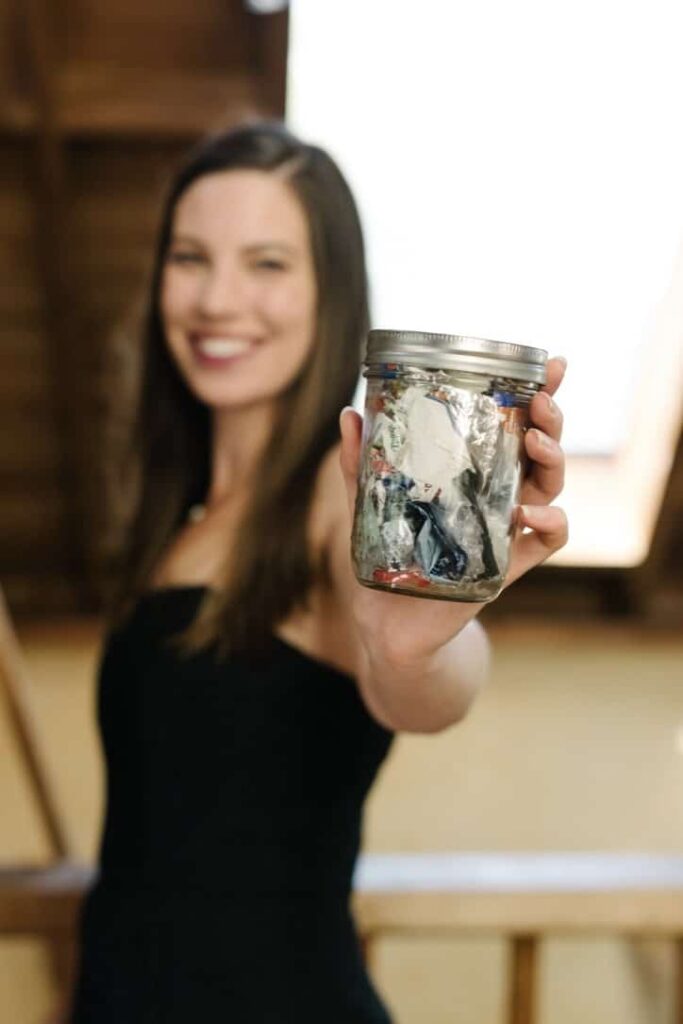
2. you won’t go zero waste overnight:
If you’re like me, then you like to do things 200%. When I make my mind up about something, I am *INVESTED*.
Let’s take ‘getting healthier’ as an example. I will commit to waking up at 6 am and doing ALLLLL the things for about 3 weeks until I burn out and let those tiny ‘habits’ slip one by one.
Binging your goals isn’t a healthy or sustainable way of achieving long-term success. And similar to being healthier, living a more eco-friendly life isn’t about crash dieting; it’s about creating a sustainable, life-long practice.
I love the word sustainable because we typically use it when referring to our planet, but the fact is sustainability also applies to humans.
We must make sure that we can maintain what we’re doing. Be sure to check out my blog post 5 Tips for Maintaining Personal Sustainability where I go over this in great detail.
Start slow, make a few changes at a time. Once they stick, it will be easier and easier to pick up and add on new habits. I like to recommend everyone start with a trash audit.
And, if you’re just starting to live a more eco-friendly life be sure to check out my blog posts for beginners.
3. don’t throw out all your stuff:
A lot of people think living a more eco-friendly life means having to buy a bunch of new fancy eco-friendly products.
This couldn’t be further from the truth. Throwing out all your perfectly good stuff is the exact opposite of what you should be doing.
I still have my old plastic ice-cube trays and plastic toilet brush. These items work perfectly fine and I plan on using them until the break.
Once they’ve outlived their useful life then I’ll upgrade to something more eco-friendly like a silicone ice-cube tray and a bamboo toilet brush.
But, until that time comes, the most eco-friendly thing I can do is to continue using what I have!
Check out my blog post what to do with old plastic when going zero waste for more ideas on how to upcycle and reuse what you already have.
A zero waste lifestyle is about using everything you have to its fullest. Remember – Reduce, Reuse, Recycle.
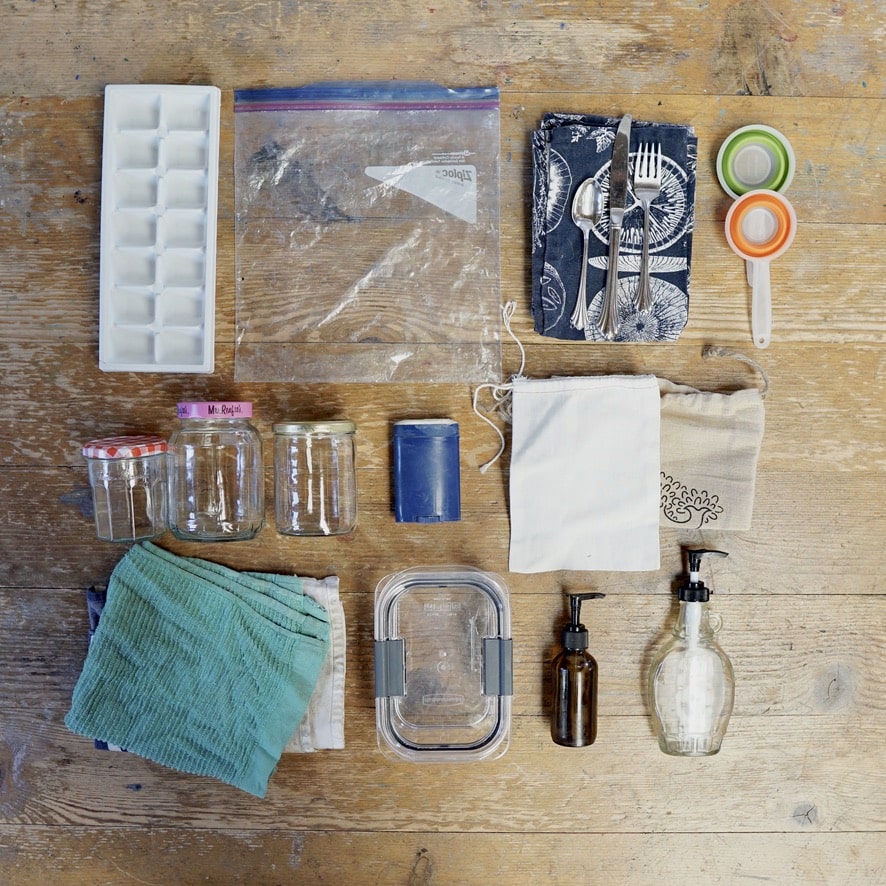
4. a few people will treat you differently:
A few people are going to treat you differently. It happens when you change your lifestyle whether that’s trying to be healthier, start a new business or living more sustainably.
Making any lifestyle change for the better will result in people projecting their own insecurities and fear on to you. This might manifest in a snide remarks or people over apologizing FOR EVERYTHING.
This typically happens right at the beginning and fades over time. I’ve been living a zero waste lifestyle for more than five years and no one really says anything anymore.
It’s old news at this point because my friends and family understand that I’m not judging them and their choices.
When I first decided to go zero waste, they didn’t know if I’d be judgmental, but now that time and space has passed they feel secure around me and have quit over apologizing and/or making snarky remarks.
I have a great blog post on this called How to Deal with Judgmental Friends and Family where I teach you how to combat negativity that might be thrown your way.
In my experience, there’s far more praise and amazing conversations that have come from this than negativity.
So, please don’t let a few potential rude remarks hold you back from making an awesome impact on this world.
5. things won’t go your way 100% of the time:
I know this should be obvious, but I feel like it needs to be said.
It can be really discouraging to see people posting about how little trash they make, especially when you’re trying really hard and things keep happening out of your control.
I’ve often wondered how some people can go on a 6 month+ trip around the world and never wind up with a single plastic straw or water bottle.
*News Flash* they probably didn’t, but they’re scared of ‘not being perfect’ so they fudge the truth a little which perpetuates this cycle.
Things are going to happen outside of your control and that’s totally OK.
It is not about being perfect. It’s about using your actions to encourage larger changes from businesses and through policy which brings me to my next point.
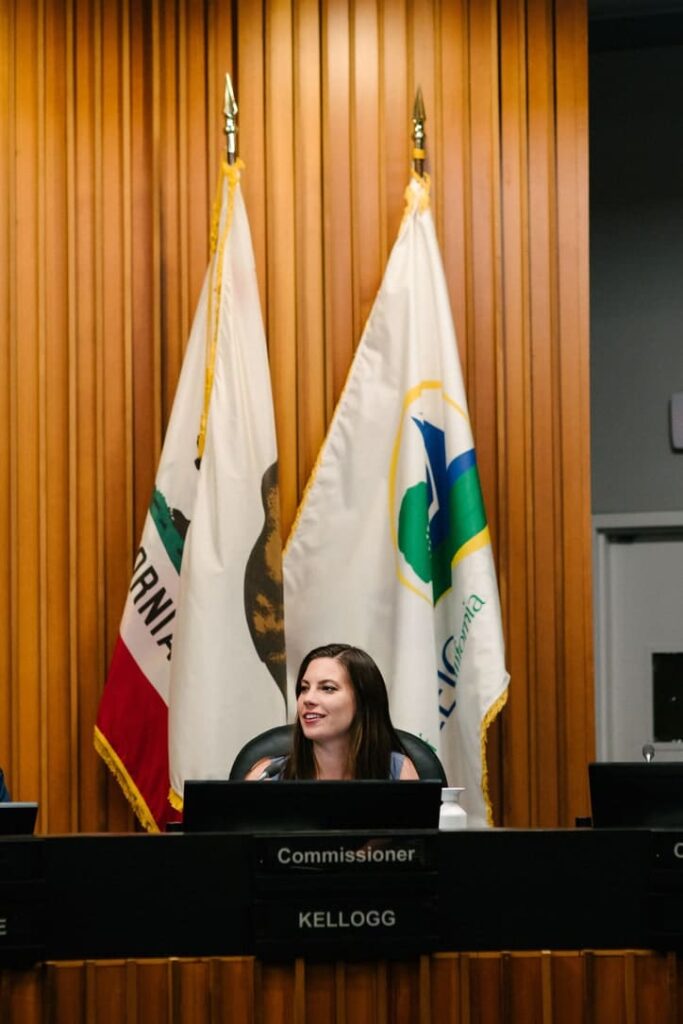
6. don’t be too hard on yourself – we need system change:
Individual action is really important, but we also need sustainable business and policy change. I see individual action as means to an end – not the end.
Our economy is run on supply and demand so citizens must first act or demand in order for companies and politicians to listen.
The goal is to stir up enough conversations, to have enough influential people pushing these ideas so they become baked into our society, business practices, and legislation.
Next time you’re stressed because you feel like you’re not doing enough, remember, saving the world from climate change does not fall solely on your shoulders. Yes, your individual actions are important, but that doesn’t mean you have to be perfect all the time.
We need millions of people taking small, daily actions not just a few ‘exemplary environmentalists’ who live-completely off-grid, survive off carbon emissions instead of food, and never make trash.
7. be open to changing your mind and learning new things:
Climate science is rapidly advancing. We’re constantly getting new information which can challenge some older ideas we’ve been taught.
Make sure you’re open to being wrong, changing your mind, and willing to accept new information as it comes out.
As someone who’s been writing for five years, I’m sure there’s some outdated information on this site, and I am the first person to admit I can get it wrong.
Which is totally normal! A lot of people feel like they always have to be right and *perfectly correct*, but that’s not possible.
And, there are some people who can get very defensive when presented with new information. Don’t be that person.
Sustainability is difficult to judge because there are so many different factors, resources, water, energy, carbon footprint, waste etc. And, if you prioritize water and I prioritize waste – then we might come to very different conclusions about what the most sustainable option is.
It doesn’t mean that your right and I’m wrong, it means sustainability can be subjective.
Instead of fighting with our teammates about who’s slightly more sustainable, let’s use that energy to talk to our representatives, family members, and companies to persuade them to make large-impactful changes in any of those areas.
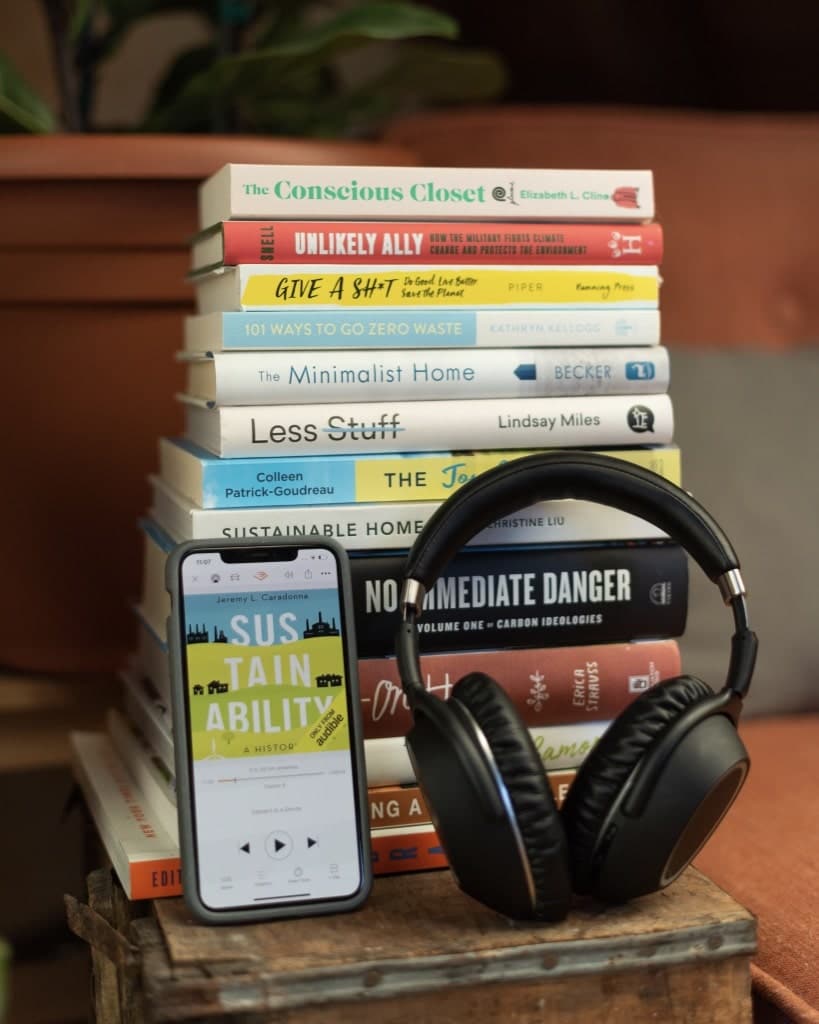
8. you will get overwhelmed:
The likely chance of you feeling overwhelmed about climate change or the 6th Mass Extinction at some point – is pretty high.
Part of my job is to stay up-to-date with the latest climate news, and I can get overwhelmed pretty often.
When I’m feeling overwhelmed, it’s really easy to either get mad at myself for not doing enough or just want to say, ‘forget it.’
Neither of those actions are good solutions. When you feel overwhelmed try to take a step back. Allow yourself some grace, patience, and see point six again.
You can also get my guide for combatting eco-anxiety and if you’re finding things especially difficult don’t be afraid to reach out to a therapist.
These are the eight things I think you should know before going zero waste or starting an eco-friendly lifestyle.
Have you started trying to live a more eco-friendly lifestyle? I’d love to know what you’d add to the list.

